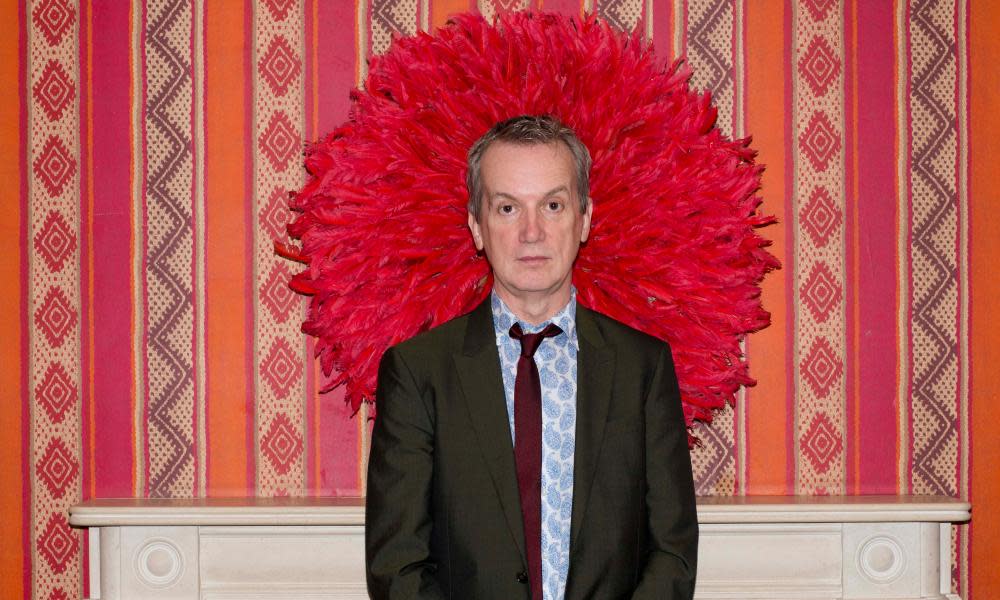From standup to stanzas: Frank Skinner's terrific guide to poetry

‘Phwooar – Ginsy Ginsy Ginsy, I love you so much!” You won’t find that in FR Leavis. The “Ginsy” in question is beat poet Allen Ginsberg. The literary critic is Frank Skinner, deconstructing Ginsberg’s Sunflower Sutra on his Absolute Radio poetry podcast. Now embarking on its second series, the podcast is a terrific listen: bursting with enthusiasm for its chosen poems and constantly amusing about Skinner’s relationship with them. The standup is also quite brilliant at giving us footholds on the verses under review: Parnassus never felt so approachable.
Has it got anything to do with Skinner’s comedy? Well, it certainly tells you plenty about the man, and makes you wonder whether he might have taken up stanzas not standup, had that not felt like an even bigger leap from his lowly Black Country beginnings. That’s the take-home from episode one of this second series, in which Skinner discusses Liz Berry’s poem Birmingham Roller, about the West Midlands pigeon that cavorted in the skies of Berry’s (and Skinner’s) youth.
It’s not the first time Skinner has tackled a bird poem: an earlier episode swooned over Gerard Manley Hopkins’ The Windhover. He clearly loves poems about weightlessness and wings, and he’s not afraid to say so. What makes the podcast so lovable – and it’s not a quality we associate with Skinner’s standup – is his emotional candour. He wears his heartfelt responses to the poems on his sleeve. He tells us what they mean to him – the young Catholic schoolkid dumbstruck by Ferlinghetti’s hep-cat Jesus in Sometime During Eternity, or the lover harrumphed at by his partner for turning his back on her in bed – a memory summoned by William Carlos Williams’ ecstatic celebration of the solitary self, Danse Russe.
Then there’s Birmingham Roller, whose portrait of the landscape of Skinner’s youth clearly affects him, and with whose titular bird, “bred to dazzling in [Black Country] backyards”, he sheepishly identifies. (“I hate saying that. But I’m going to share what I feel with you.”) So changed is he by the poem, and how it validates the culture that reared him, it drives him to repudiate an old standup routine in which he equated the word “local” with the word “shit”. Comedy demands of Skinner that he be funny; in his podcast, he forces himself to be true.
And funny as well. The whole thing is punctuated by the reassurances (“Don’t worry – trust me!”) and repeated self-deprecation of a host who knows some listeners might need their hands held. So he holds their hands, but without condescension. He’s got a real flair for making the poems relatable – by comparing the protagonist of Danse Russe, say, with a man farting in the audience of the Birmingham Royal Ballet. But his analyses are erudite and considered, too, as he wrestles to pin down the philosophy of the beats, or picks apart the word “larking” in Stevie Smith’s most famous verse.
If you’re a fan – as I am – of Skinner’s standup, you’ll enjoy tracing how his poetry appreciation now dovetails with, and now diverges from, comedy. Transpose on to standup his reading of Gregory Corso’s Man Entering the Sea, which concentrates all of evolution into the spectacle of a bather going for a dip, and you get – bit of a clash, this – Michael McIntyre’s routine about swimming pools. (“It’s all right once you’re in!”)
That brand of comedy, you might think, can only seem superficial by comparison with poetry. Then you listen to Skinner’s account of what poets do: “They see an ordinary thing that we all see, and then they illuminate it. They do something with that everyday thing that makes it sacred, if you like.” Remind you of anyone else? Another profession that takes the mundane and fashions it into something intensely, transcendentally alive? Skinner’s podcast is all about the poetry, of course. But you can’t listen without the thought occurring that comedians, himself included, are poets of a sort, too.
• Frank Skinner’s Poetry Podcast is widely available.


